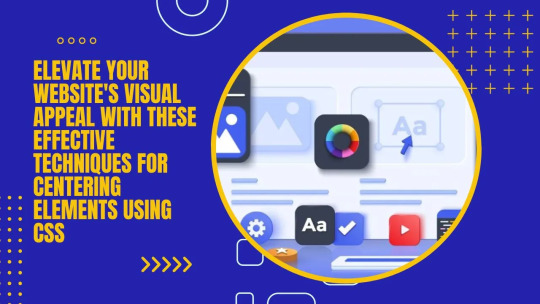#Best SEO Company in Toronto
Explore tagged Tumblr posts
Text
Best SEO Company in Toronto

Worried about your website's ranking? When you hire Pat’s Marketing, you can in good hands. We are a leading SEO company in Toronto, specializing in delivering effective and tailored search engine optimization solutions to businesses of all sizes. Our services help in bridging the communication gap between your company and your customers. We have helped numerous businesses across diverse industries achieve higher search engine rankings, increased website traffic, and improved conversion rates. Whether you are a small local business or a large enterprise, Pat's Marketing can help you achieve your online marketing goals. For inquiries, Contact Pat's Marketing today at 1.888.488.7287.
30 notes
·
View notes
Text
#seo services#marketing#business growth#digital marketing#toronto#canada#best digital marketing company#best digital marketing course#best digital marketing in Canada#social media marketing#branding#product branding#product design#fyntix
2 notes
·
View notes
Text
#web design company ottawa#canadian website design#canada web design#web design toronto#affordable seo toronto#website designer canada#canadian web designs#web design brampton#canadian web design#website design company canada#best website builders#web designers near me#web page design#web design company#web design agency
0 notes
Text
E-Commerce SEO: Best Practices For Ranking Higher in Search Engines

Welcome to the world of e-commerce SEO, where the power of search engine optimization can catapult your online store to new heights! In this digital era, ranking higher in search engines is not just a desire but a necessity for any business striving for success. Whether you are an established e-commerce giant or a budding entrepreneur, understanding and implementing the best practices for optimizing your website is crucial. So, get ready to unlock the secrets that will put your online store on top of search engine results pages and attract hordes of eager customers. Get ready to take your e-commerce game to a whole new level with these tried-and-tested strategies!
WHY IS SEO IMPORTANT FOR E-COMMERCE?
SEO, or Search Engine Optimization, is a crucial aspect of any E-Commerce website. It plays a significant role in determining the success of an online store by improving its visibility and driving more targeted traffic to the site.
In today’s digital age, where competition in the E-Commerce industry is fierce and constantly growing, having a strong SEO strategy is no longer optional but rather essential for survival. With millions of websites competing for top rankings on search engines like Google, Bing, and Yahoo, it has become increasingly challenging for E-Commerce businesses to stand out from the crowd and attract potential customers.
So why exactly is SEO important for E-Commerce? Let’s dive into some key reasons:
1. Improve Organic Traffic
Organic traffic refers to visitors who come to your site by clicking on unpaid search engine results. By optimizing your website with relevant keywords and high-quality content that matches what people are searching for, you can significantly increase your organic traffic. As a result, this will drive more potential customers to your site without having to pay for advertisements or promotions.
2. Higher Search Engine Rankings
The ultimate goal of SEO is to improve your website’s ranking on search engine result pages (SERPs). The higher you rank on these SERPs, the more visible your website becomes to potential customers. Most users tend not to go beyond the first page of search results when looking for a product or service online; thus being ranked higher increases the chances of getting clicks and conversions.
UNDERSTANDING THE BASICS OF SEO FOR E-COMMERCE WEBSITES
Search engine optimization (SEO) is a crucial aspect for any e-commerce website looking to increase its visibility and attract more potential customers. In simple terms, SEO refers to the process of optimizing your website and its content in order to rank higher in search engine results pages (SERPs). As an e-commerce business, having a strong online presence is essential for success, and understanding the basics of SEO can greatly contribute to achieving this goal.
Here are some key elements to understand when it comes to implementing effective SEO strategies for your e-commerce website:
1. Keyword Research
Keywords are words or phrases that users enter into search engines when looking for products or services. Conducting thorough keyword research will help you identify the terms and phrases that are most relevant to your business and have high search volume. This will allow you to optimize your product descriptions, titles, and meta tags with these keywords, making it easier for potential customers to find your site through organic search.
2. On-Page Optimization
On-page optimization involves optimizing the content on individual web pages in order to improve their visibility on SERPs. This includes using relevant keywords in titles, headings, meta descriptions, alt tags for images, and throughout the content itself. It’s important to note that while incorporating keywords is important for SEO purposes, they should be used naturally within the content without appearing forced or spammy.
3. Site Structure
Having a well-organized site structure not only makes it easier for users to navigate your website but also helps search engines crawl and index your pages more efficiently. A clear and logical site structure can also improve the user experience, resulting in longer time spent on your site and potentially higher conversion rates.
4. Mobile Optimization
With the rise of mobile devices, it’s crucial for e-commerce websites to have a mobile-friendly design. This means ensuring that your website is easily accessible and functional on all types of devices. Search engines also prioritize mobile-friendly websites in their rankings, so having a responsive design is essential for SEO.
5. Quality Content
In addition to keyword optimization, having high-quality content is crucial for SEO success. This includes product descriptions, blog posts, and any other written content on your website. By providing valuable and relevant information to users, you can improve user engagement and encourage them to spend more time on your site.
6. Link Building
Link building refers to the process of acquiring backlinks from other reputable websites to your own. These links act as “votes” of confidence for your website and can greatly improve its authority and credibility in the eyes of search engines. However, it’s important to focus on quality over quantity when it comes to link building – a few high-quality backlinks will be more beneficial than many low-quality ones.
BEST PRACTICES FOR E-COMMERCE SEO:
E-commerce SEO, or search engine optimization, is a crucial aspect of running a successful online store. It involves optimizing your website’s content and structure to increase its visibility on search engine result pages (SERPs). With the ever-growing competition in the e-commerce industry, it has become essential to follow best practices for e-commerce SEO in order to rank higher and drive more traffic to your website.
There are many different strategies and techniques that can help improve your e-commerce site’s SEO performance. In this section, we will discuss some of the most effective best practices for e-commerce SEO that you should implement on your website.
1. Conduct Keyword Research
The first step towards improving your e-commerce site’s SEO is conducting thorough keyword research. This involves identifying the keywords and phrases that potential customers are using to search for products similar to yours. By targeting these keywords in your content, you can attract more relevant traffic to your site.
There are various tools available, such as Google Keyword Planner and SEMrush, that can help you identify high-volume keywords with low competition. You should also consider incorporating long-tail keywords into your strategy as they are more specific and have better conversion rates.
2. Optimize Your Product Pages
Your product pages play a crucial role in converting visitors into customers. Hence, it is essential to optimize them for both users and search engines. Start by including the targeted keyword in the page title, meta description, URL, and product description.
Make sure to write unique product descriptions rather than using the manufacturer’s provided content. This will help avoid duplicate content issues and improve your site’s overall SEO. Additionally, add high-quality images and videos to your product pages, as they can significantly impact the user experience and increase your chances of making a sale.
3. Improve Site Speed
Site speed is a critical ranking factor for search engines. In fact, Google has stated that page load time is one of the top factors in determining a site’s ranking on SERPs. Slow loading times can also lead to a higher bounce rate and lower conversion rates.
To improve site speed, optimize your images by compressing them and use a reliable hosting provider with fast servers. You can also use caching plugins and minimize HTTP requests to further boost your site’s speed.
4. Utilize Internal Linking
Internal linking is an effective way to improve your e-commerce site’s SEO. It involves linking to other pages within your website from relevant anchor text on product pages or blog posts.
Internal linking helps search engines understand the structure of your website and establishes relationships between different pages. It also encourages visitors to explore more pages on your site, increasing their session duration and reducing bounce rates.
CONCLUSION
In today’s digital age, having a strong online presence is crucial for the success of any business. By implementing these best practices for e-commerce SEO, you can improve your website’s visibility and attract more potential customers to your online store. Keep in mind that SEO is an ongoing process and requires regular updates and monitoring to stay ahead of the competition. With dedication, patience, and the right strategies, you can increase your ranking on search engines and drive more traffic to your e-commerce site. Don’t wait any longer, start optimizing today!
#E-Commerce SEO: Best Practices For Ranking Higher in Search Engines#web development#digital marketing#web design company in mississauga#web design agency in toronto canada#app development#digital marketing agency canada#multimedia / flash animation services#web devlopment#graphic design
0 notes
Text

Stay up to date with the latest SEO trends and industry updates by following our blog. We regularly publish informative SEO articles and updates to keep you informed about the ever-evolving world of search engine optimization. Whether it's algorithm changes or new SEO techniques, we've got you covered.
#affordable seo services Toronto#seo companies toronto#seo toronto#top seo toronto#best seo company toronto
0 notes
Link

Looking for an SEO company in Toronto? You can count on Pats Marketing. Our custom SEO strategy and hands-on approach to SEO ensures you're optimized and maintain high rankings & thus good traffic & leads from your website. Contact Pat's Marketing, the best SEO company in Toronto, to get ranked because good ranking means good traffic & business.
6 notes
·
View notes
Text
AI will replace human content writers entirely, it will undoubtedly play a significant role in the future of SEO and content marketing.
#Toronto SEO#SEO Company Toronto#SEO Vancouver#SEO Toronto#Digital Marketing Company Toronto#Digital Marketing Company#seo in toronto#iqlance#canada#digitalmarketing#seo company in toronto#digital marketing agency#seo services#best seo company#digital marketing services
1 note
·
View note
Text
Discover how to choose the best digital agency in Toronto with expert tips. Elevate your business with the right marketing partner today!
#best digital marketing agency in toronto#digital marketing in toronto#seo agency toronto#digital marketing company
0 notes
Text
Best SEO Company Toronto best seo company canada
seo companies for small business
#Best SEO Company Toronto#best seo company canada#biggest seo company#top seo company in toronto#top seo company in north yourk#seo companies for small business#seo services provider#seo companies in australia
0 notes
Text
Mastering the Art of Internet Marketing: A Comprehensive Overview for Success
""
In today's electronic age, online marketing has actually become a vital device for companies to flourish and also reach their target audience. With the ever-growing popularity of online platforms, understanding the art of internet marketing has become a vital aspect of any effective service strategy. Whether you are a small company proprietor, an entrepreneur, or a marketing professional, understanding the ins and outs of online marketing is crucial for attaining remarkable results as well as staying in advance of the competition.Internet advertising incorporates a wide variety of methods and methods targeted at advertising items or solutions with digital channels. This consists of search engine optimization(SEO), social media sites advertising, e-mail advertising, web content advertising and marketing, and paid advertising and marketing, to name a few. Making use of these strategies efficiently can help companies establish a strong on-line presence, generate top notch leads, boost brand name exposure, and inevitably drive more sales. However, navigating the intricate globe of online marketing needs a solid understanding of the most recent patterns, best techniques, and devices available. In this extensive overview, we will certainly explore the numerous elements of online marketing, providing valuable understandings as well as actionable ideas to aid you be successful in this vibrant and also ever-evolving area. Whether you are a novice wanting to start or a skilled marketing professional seeking to improve your skills, this overview will equip you with the understanding and sources needed to master the realm of online marketing.
Read more here Toronto SEO

2 notes
·
View notes
Text
Elevate Your Website's Visual Appeal With These Effective Techniques For Centering Elements Using CSS
In today’s fast-paced digital world, having a visually appealing website is essential to stand out from the crowd. One effective way to achieve this is by centering elements using CSS. Not only does it make your website look more professional, but it also enhances user experience.

In this blog post, we will introduce you to 11 effective techniques for centering elements using CSS that will elevate the visual appeal of your website and take it to the next level! So get ready to enhance your design skills with these simple yet powerful techniques.
WHAT IS CENTERING ELEMENTS IN CSS?
Centering elements in CSS is a technique for positioning HTML elements on a web page. There are several ways to center elements in CSS, and the most common method is to use the “margin: 0 auto” property.
Other methods of centering elements in CSS include using the “text-align: center” property, or setting the element’s position to “absolute” and using the “left: 50%” and “transform: translateX(-50%)” properties.
The method you choose will depend on the type of element you’re trying to center, and whether or not you want that element to be responsive.
WHY IS IT IMPORTANT TO CENTERING ELEMENTS IN CSS?
It’s important to center elements in CSS because it helps create a more balanced and symmetrical look for your web page. When elements are properly centered, they can add visual appeal and help direct a user’s eye toward the most important information on the page.
There are a number of different techniques that can be used to center elements in CSS. The most common method is to use the text-align property with a value of “center.” This will align all the text within an element to the center of that element.
Another popular technique is to use the margin property with auto values for both the left and right margins. This will cause the browser to automatically calculate equal margins on both sides of an element, effectively centering it within its containing element.
One can also use absolute positioning to center an element within its containing element. This involves setting the position property to “absolute” and then using either top or bottom and left or right properties to adjust the position of the element until it is perfectly centered.
HOW TO CENTER DIV OR TEXT IN DIV USING CSS?
If you’re working on a web design project and want to center either a div or text within a div, there are a couple of ways you can do it using CSS.
If you want to center a block level element like a div, you can use the CSS property “margin: 0 auto”. This will set the margins on the left and right sides of the element to be equal, thereby centering it.
If you want to center text or inline elements within a div, you can use the “text-align: center” property. This will align all the text within the div to be centered.
8 EFFECTIVE TECHNIQUES FOR CENTERING ELEMENTS USING CSS
In order to center elements using CSS, there are a few different techniques that can be employed. One popular technique is to use the “text-align” property with a value of “center.” This can be applied to any block level element, such as a paragraph, and will cause the contents of that element to be centered within the overall width of the containing element.
Another common technique is to set the width of the element to be centered to a specific value, then use the “margin” property with a value of “auto.” This will cause the element to be horizontally centered within its containing element, regardless of the width of that container.
It’s also possible to center elements vertically within their containing elements using CSS. This can be accomplished by setting the height of the container to a specific value, then using the “line-height” property with a value that is equal to or greater than the height of the container. The element will then be vertically centered within its containing element.
These are just a few of the many techniques that can be used for centering elements using CSS. By employing one or more of these techniques, you can easily improve the visual appeal of your website.
– FLEXBOX
When it comes to centering elements using CSS, there is no better option than flexbox. Flexbox provides a simple way to center elements horizontally and vertically within their container. In addition, flexbox can be used to create responsive layouts that automatically adjust to the size of the screen.
To use flexbox for centering, you must first set the display property of the container to flex. Then, you can use the justify-content property to center the elements horizontally, and the align-items property to center them vertically. For example, if you want to center an element horizontally and vertically within its container, you would use the following code:
container { display: flex; justify-content: center; align-items: center; }
– GRID LAYOUT
When it comes to CSS, there are a few different techniques that can be used to center elements on a page. The most common technique is known as the grid layout. This technique involves using a series of nested divs to create a grid of boxes that can then be used to position elements within that grid.
The first step in using the grid layout is to create a series of divs that will act as the columns of your grid. These divs should be given a class name so that they can be easily targeted with CSS. Once you have your column divs in place, you’ll need to add some content to them. This can be done by adding more divs or by using other HTML elements such as paragraphs or headings.
Once you have your columns and content in place, you can start positioning elements within the grid. To do this, you’ll need to use the CSS properties “float” and “clear”. The float property allows you to specify how an element should float within its parent container. By default, elements float to the left side of their container. However, if you want an element to be centered within its container, you’ll need to set the float property to “none”.
The clear property specifies what side of an element’s container other elements are not allowed to float on. So, if you want all subsequent elements after a centered element to also be centered, you would set the clear property to “both”.
App lying the grid layout technique is a great way to create a visually appealing design that is easy to understand and maintain. It also allows you to easily define how elements should be positioned within the grid, making it simple to adjust as needed.
– ABSOLUTE POSITIONING
When it comes to CSS, there are a few different methods that can be used to center elements on a web page. The most common method is to use the text-align property, which can be applied to both block-level and inline elements. However, this method only works if the width of the element is explicitly set.
Another method that can be used is the margin: auto; technique. This can be applied to block-level elements that have a set width, and will cause the element to be centered within its containing element.
If you want to center an element that is not a block-level element, or if you don’t want to set a width, then you can use the absolute positioning technique. With absolute positioning, you can specify exactly where you want an element to appear on the page using the left and top properties. You also need to set the position property to “absolute” for this technique to work.
– RELATIVE POSITIONING
When it comes to CSS, there are a few different ways to center elements on a web page. The most common method is to use the “text-align” property. This can be applied to either the entire page or to individual elements. For example, to center all of the text on your page, you would add the following CSS rule to your stylesheet:
body { text-align: center; }
You can also use the “text-align” property to center specific elements on your page, like images, blockquote, etc. For example, if you want to center an image that’s inside a div element, you would add the following CSS rule:
div { text-align: center; } img { /* this is for centering images */ display: block; margin: 0 auto; /* important */ /* top and bottom margins are 0 */ width: 50%; /* image width can be anything less than or equal to container width */ }
Another way to center elements is by using the “margin” property. You can set the left and right margins to “auto”, which will evenly distribute them within the containing element. This works for both block level and inline elements. For example, if you want to center a div element on your page, you would add the following CSS rule:
div { margin-left: auto; /* important */ margin-right: auto; /* important */ width: 50%; /* div width can be anything less than or equal to its parent container width */ }
Finally, you can use the “position” property with the “relative” value. This will set an element’s position relative to its containing element and then center it using margins. For example, if you want to center a div element on your page, you would add the following CSS rule:
div { position: relative; /* important */ left: 50%; /* important */ top: 50%; /* important */ margin-left: -25%; /* important */ margin-top: -25%; /* important */ width: 50%; /* div width can be anything less than or equal to its parent container width */ }
– TRANSLATE METHOD
When it comes to centering elements using CSS, there are a few different methods you can use. The ‘translate’ method is one of the more popular and effective techniques.
With the translate method, you can essentially move an element around on the page until it’s perfectly centered. To do this, you’ll need to set the element’s ‘transform’ property to ‘translate(X, Y)’. X and Y represent the amount of pixels you want to move the element horizontally and vertically, respectively.
For example, if you wanted to center an element horizontally on a page, you would set the X value to ‘50%’ and leave the Y value at ‘0px’. This would cause the element to be positioned 50% from the left side of the page (the exact center).
You can also use negative values for X and Y if you want to move an element up or left from its current position. So, if you wanted to move an element 10px to the left and 5px up from its current position, you would set the X value to ‘-10px’ and the Y value to ‘-5px’.
Once you have your desired position set, all that’s left is to add some vendor prefixes (-webkit-, -moz-, etc.) so that your CSS will work across all browsers.
– MARGIN AUTO METHOD
When it comes to CSS, there are a number of different methods that can be used to center elements on a web page. One popular method is known as the margin auto technique. This approach is relatively simple and only requires a few lines of code.
Here’s how the margin auto method works:
First, you need to set the width of the element that you want to center. This can be done using the width property in CSS. Next, you need to set the left and right margins to auto. This will cause the browser to automatically calculate equal margins for the element, effectively centering it on the page.
And that’s all there is to it! The margin auto method is a quick and easy way to center elements using CSS. Give it a try next time you’re working on a web project.
– TEXT ALIGN PROPERTY METHOD
The text-align property is a CSS method for centering elements on a web page. This can be done horizontally, vertically, or both.
To center horizontally, you would use the text-align:center; property. This is probably the most common way to center elements on a web page.
To center vertically, you need to use a different method. One way to do this is by setting the element’s height and width properties to 100%. Then, set the top and bottom margins to auto. This will make the element centered vertically on the page.
You can also use the flexbox model to center elements vertically. The flexbox model is powerful and has many other applications beyond centering elements. If you’re not familiar with flexbox, there are plenty of tutorials online that can help you get started.
– TRANSFORM PROPERTY METHOD
When it comes to centering elements using CSS, the transform property method is one of the most effective. This is because it allows you to center an element horizontally and vertically at the same time.
To use this method, you first need to add the following CSS code to your element:
transform: translate(-50%, -50%);
This will cause your element to be positioned 50% from the top and 50% from the bottom of its containing element. As a result, it will be horizontally and vertically centered.
CONCLUSION
CSS centering elements is a simple but effective way to improve the visual appeal of your website. By implementing these techniques, you can create attractive and well-balanced designs that are both eye-catching and easy to read. With the help of CSS, you can add custom styles to your webpages in no time at all.
So don’t wait any longer – get started with centering elements using CSS and elevate your website’s visual appeal today!
#Elevate Your Website's Visual Appeal With These Effective Techniques For Centering Elements Using CSS#Multimedia / Flash Animation Services#Reliable seo consultant#Best Web Design Company In Toronto
0 notes
Text

Our team of experienced SEO experts will analyze your website, identify opportunities for improvement, and implement strategies to optimize your site for search engines.
#seo companies Toronto#affordable seo toronto#digital front technologies#top seo toronto#best seo company toronto#seo services toronto
0 notes
Text
Grasping the Art of Web Marketing: A Comprehensive Guide for Success
""
In today's digital age, internet advertising has come to be a crucial tool for companies to grow as well as reach their target audience. With the ever-growing popularity of on-line systems, grasping the art of net advertising and marketing has become a key aspect of any kind of successful business approach. Whether you are a small company proprietor, a business owner, or an advertising and marketing specialist, understanding the intricacies of net advertising and marketing is vital for achieving exceptional outcomes and remaining in advance of the competition.Internet advertising incorporates a large range of approaches and methods intended at promoting service or products with electronic networks. This consists of seo(SEO), social media sites advertising, e-mail advertising and marketing, web content advertising, and paid advertising and marketing, to name a few. Making use of these techniques properly can assist services establish a strong on-line existence, generate premium leads, rise brand presence, and also eventually drive more sales. Nonetheless, navigating the complicated world of net marketing needs a strong understanding of the most recent trends, best methods, as well as tools readily available. In this thorough guide, we will certainly delve into the various aspects of online marketing, giving valuable understandings and actionable suggestions to help you be successful in this dynamic as well as ever-evolving field. Whether you are a beginner looking to start or an experienced marketing expert looking for to refine your skills, this guide will equip you with the understanding as well as resources required to excel in the world of web advertising.
Read more here seo toronto

3 notes
·
View notes
Text
Toronto's Choice for SEO Excellence & Staying on Top of the SEO Game

Stay Ahead of Google's Algorithm Updates with Our Expert SEO Consultants in Toronto! Our dedicated team analyzes and adapts to the latest algorithm changes, ensuring your website maintains top rankings. Trust us to implement cutting-edge strategies, keyword optimization, and content refinement, keeping your online presence resilient and thriving amidst Google's dynamic updates. Partner with the best SEO company in Toronto—Pat's Marketing—for unparalleled excellence in optimizing your digital presence and achieving lasting success.
1 note
·
View note
Text
Toronto SEO Firm: Boost Your Online Presence Today

In today's digital landscape, having a strong online presence is no longer a luxury—it's a necessity. Businesses in Toronto, just like anywhere else, need to embrace the power of search engine optimization (SEO) to stay ahead of the competition. If you're searching for ways to enhance your brand's visibility and connect with your target audience, partnering with a reliable Toronto SEO Firm can be your ultimate game-changer. With the right strategies and expertise, a professional SEO Company Toronto can help you achieve long-term growth and success in the competitive online marketplace.
When you think about building your digital footprint, it's essential to have a well-rounded approach. An experienced SEO Agency in Toronto doesn’t just optimize your website for search engines but ensures it resonates with your audience. The ultimate goal is to drive organic traffic, increase engagement, and convert visitors into loyal customers. Let’s dive into how partnering with an SEO Firm in Toronto can transform your business.
Understanding the Role of a Toronto SEO Firm
An SEO Company Toronto specializes in elevating your online visibility. This involves a series of strategies, techniques, and tools aimed at ensuring your website ranks higher on search engines like Google. Why is this important? Studies reveal that websites appearing on the first page of search results receive the majority of clicks, making it crucial for your business to secure one of these coveted spots.
What sets a Toronto SEO Firm apart is its ability to tailor strategies specific to your business needs. From keyword research to content optimization, a professional team works to ensure your website aligns with the latest SEO trends while staying true to your brand identity.
Key Services Offered by an SEO Agency in Toronto
A well-established SEO Agency in Toronto offers a wide range of services that cater to various aspects of search engine optimization. Here's what you can expect:
Keyword Research and Strategy: Keywords are the backbone of any successful SEO campaign. Experts analyze your industry and target audience to identify the most relevant keywords for your business.
On-Page SEO: This involves optimizing individual web pages to improve their search engine rankings. This includes meta tags, headers, content, and URL structure.
Off-Page SEO: Building quality backlinks is a critical component of off-page SEO. A reputable Toronto SEO Firm focuses on earning authoritative links to strengthen your website's credibility.
Local SEO: For businesses in Toronto, local SEO is indispensable. This ensures your business appears in local searches, such as “best coffee shop in Toronto” or “top SEO Company Toronto.”
Content Marketing: Content is king, and SEO experts know how to create and optimize content that ranks well while providing value to your audience.
Technical SEO: This focuses on enhancing your website’s infrastructure, ensuring fast load times, mobile-friendliness, and error-free functionality.
Benefits of Hiring an SEO Company Toronto
Working with an experienced SEO Company Toronto comes with numerous advantages. Let’s explore how this partnership can benefit your business.
Increased Online Visibility
By leveraging the expertise of an SEO Agency in Toronto, your website can rank higher for relevant keywords, making it easier for potential customers to find you. This visibility directly impacts your brand awareness and credibility.
Targeted Traffic
Not all traffic is valuable. What matters is driving traffic that converts. A professional Toronto SEO Firm ensures your website attracts visitors who are genuinely interested in your products or services.
Better User Experience
SEO isn’t just about pleasing search engines—it’s about creating a seamless experience for users. From intuitive navigation to engaging content, the focus is on making your website a place where users want to spend time.
Long-Term Results
Unlike paid ads that stop yielding results as soon as you pause them, SEO provides lasting benefits. Once your website is optimized, it continues to attract organic traffic over time.
Competitive Edge
In a bustling city like Toronto, standing out can be challenging. By working with a skilled SEO Company Toronto, you can outperform competitors and establish yourself as a leader in your industry.
Choosing the Right SEO Services Toronto
Not all SEO companies are created equal. To ensure you’re getting the best results, it’s crucial to choose an SEO Agency in Toronto that understands your business goals. Here are a few tips for selecting the right partner:
Experience and Expertise: Look for a company with a proven track record and experience in your industry. Their expertise can make a significant difference in your results.
Customized Strategies: A one-size-fits-all approach won’t work in SEO. Make sure the agency offers personalized strategies tailored to your unique needs.
Transparent Communication: A good Toronto SEO Firm keeps you informed about the progress of your campaigns through regular reports and updates.
Comprehensive Services: Opt for an agency that offers a full range of SEO services, from keyword research to technical SEO, so you have everything under one roof.
Client Testimonials: Reading reviews and testimonials can give you insights into the agency’s reliability and effectiveness.
Why Toronto Businesses Need SEO Now More Than Ever
Toronto is a hub of innovation, culture, and commerce, making it a competitive marketplace for businesses of all sizes. Whether you're a local café or a large e-commerce store, having a robust online presence is critical. Partnering with an SEO Company Toronto ensures you stay ahead of the curve and reach your audience effectively.
With more consumers turning to search engines to find local products and services, having a strong SEO strategy is vital. An SEO Agency in Toronto not only helps you rank higher but also ensures you’re visible to customers in your area, enhancing your chances of conversion.
0 notes